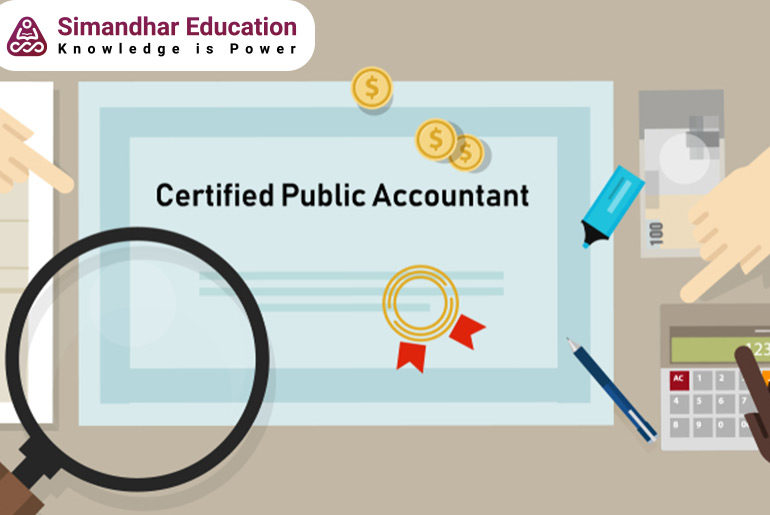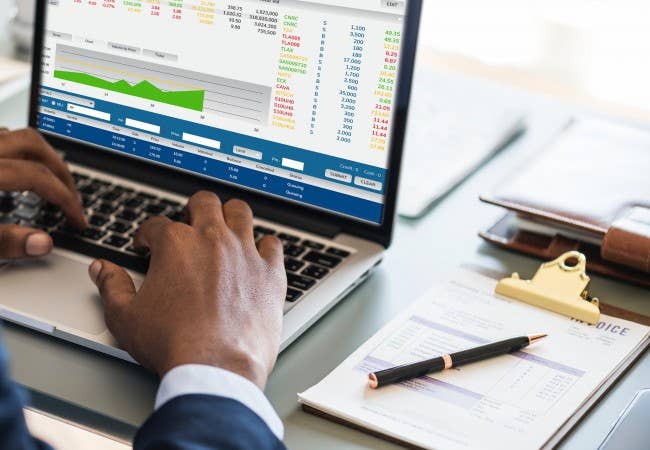
A license to practice in North Dakota as a certified public accountant is not an easy process. The bachelor's degree will be required in order to take the exam. You must also have at least 2,000 hours experience in tax advisory and tax services. A CPE exam will be required. It can also be taken online by the AICPA. CPE classes may also be required.
CPAs in North Dakota require a bachelor's level program. It must contain at least 24 Credit Hours of General Business Courses and at most 24 Credit Hours of Accounting Courses. Also, you will need to complete a major concentration on accounting. There are several post-baccalaureate accounting programs available online. Several are also offered at local colleges.

After your education is completed, you must pass CPA Exam with a minimum of 75. You can take the exam at several locations in North Dakota. At the moment, testing centers are located in Bismarck or Grand Forks. The North Dakota State Board of Accountancy can notify you by email or post about the date of the exam. The board also offers a Notice to Schedule (NTS), which you can obtain at its website. The NTS will be valid for six consecutive months from its date of issuance. The NTS expires and you must contact board to get a new NTS. You can reach the board directly if you have questions about the exam.
The Board of Accountancy, which was founded in 1913. Its mission is regulation of the practice by certified public accountants in the State. There is a president and secretary-treasurer as well as four certified public accountants. The members are appointed by the governor. Term of office is three years. A board executive director is also employed. The board may conduct a video conference meeting if one member is unable attend. The members can also participate via phone. If a member has served two consecutive complete terms, he or she is not eligible for reelection for one year.
The applicants must complete their education requirements within six month of the filing date. For foreign students, the application must include the $120 application fee, and a transcript must be submitted from the educational institution. An applicant must also request a course evaluation from NASBA’s International Evaluation Services. The North Dakota State Board of Accountancy will accept the evaluation if the courses have been evaluated by NASBA.

After completing the education and examination requirements, the candidate must have at least one year of full-time work experience in accounting under the direct supervision of a licensed CPA. It could be in public accounting. Most of the experience will relate to accounting skills such as tax advisory and attest. The candidate must also complete a CPE program, which can be found at a local college or through online webinars. The Board of Accountancy may allow exceptions to these continuing education requirements.
FAQ
What is an Audit?
Audits are a review of financial statements. An auditor examines the company's accounts to ensure that everything is correct.
Auditors search for discrepancies between the reported events and the actual ones.
They also make sure that the financial statements are correctly prepared.
What are the steps to get started with keeping books?
You'll need to have a few basic items in order to start keeping books. These items include a notebook and pencils, calculator, staplers, envelopes, stamps and a filing drawer or desk drawer.
What does it mean for accounts to be reconciled?
A reconciliation is the comparison of two sets. One set is called the "source," and the other is called the "reconciled."
The source contains actual figures. While the reconciled indicates the figure that should not be used,
If someone owes $100 but you receive only $50, this would be reconciled by subtracting $50 from $100.
This ensures that there are no accounting errors.
Accounting: Why is it useful for small-business owners?
Accounting is not only useful for big businesses. Accounting is also beneficial for small business owners, as it allows them to keep track of all their money.
You probably know how much money your business is making each month if you are a small-business owner. But what if your accountant doesn't do this for a monthly basis? You might find yourself wondering where you are spending your money. You could also forget to pay bills on-time, which could impact your credit score.
Accounting software makes it easy for you to keep track and manage your finances. There are many types of accounting software. Some are free and others can be purchased for hundreds or thousands of dollar.
No matter what type of accounting system, it is important to first understand the basics. It will save you time and help you understand how to use it.
You should learn how to do these three basics tasks:
-
Record transactions in the accounting system.
-
Track income and expenses.
-
Prepare reports.
Once you've mastered these three things, you're ready to start using your new accounting system.
What is accounting's purpose?
Accounting gives an overview of financial performance. It measures, records, analyzes, analyses, and reports transactions between parties. It allows organizations to make informed financial decisions, such as whether to invest more money, how much income they will earn, and whether to raise additional capital.
Accountants track transactions in order provide financial activity information.
The organization can use the collected data to plan its future strategy and budget.
It is crucial that the data are accurate and reliable.
Statistics
- Employment of accountants and auditors is projected to grow four percent through 2029, according to the BLS—a rate of growth that is about average for all occupations nationwide.1 (rasmussen.edu)
- Given that over 40% of people in this career field have earned a bachelor's degree, we're listing a bachelor's degree in accounting as step one so you can be competitive in the job market. (yourfreecareertest.com)
- In fact, a TD Bank survey polled over 500 U.S. small business owners discovered that bookkeeping is their most hated, with the next most hated task falling a whopping 24% behind. (kpmgspark.com)
- a little over 40% of accountants have earned a bachelor's degree. (yourfreecareertest.com)
- a little over 40% of accountants have earned a bachelor's degree. (yourfreecareertest.com)
External Links
How To
Accounting for Small Business
Accounting for small businesses should be one of your most important tasks when managing a business. Accounting involves keeping track of income, expenses, creating financial reports and paying taxes. You may also need to use software programs like Quickbooks Online. You have many options when it comes to accounting for small businesses. You need to choose the most appropriate method for your business. Below is a list of top methods that we recommend.
-
The paper accounting method is recommended. You may prefer paper accounting if you are looking for simplicity. It is easy to use this method. All you have to do is record your transactions every day. However, if you want to make sure that your records are complete and accurate, then you might want to invest in an accounting program like QuickBooks Online.
-
Use online accounting. Online accounting is a way to have easy access to your accounts no matter where you are. Wave Systems and Freshbooks are three of the most widely used options. These software are great for managing your finances, sending invoices and paying bills. These software are simple to use and offer many great benefits and features. So if you want to save time and money when it comes to accounting, you should definitely try out these programs.
-
Use cloud accounting. Cloud accounting is another option that you could use. You can store your data securely on a remote server. When compared to traditional accounting systems, cloud accounting has several advantages. It doesn't require you to purchase expensive hardware or software. You have better security since all your information can be accessed remotely. It also saves you time and effort in backing up your data. Fourth, you can share your files with others.
-
Use bookkeeping software. Bookkeeping software is similar with cloud accounting. However you must purchase a computer in order to install the software. After you install the software, you'll be able connect to the internet and access your accounts whenever you wish. You will also have the ability to access your accounts and balances directly from your PC.
-
Use spreadsheets. Spreadsheets allow you to enter your financial transactions manually. You can, for example, create a spreadsheet that allows you to enter sales figures each day. Another benefit of using a spreadsheet is the ability to make changes at will without needing an entire update.
-
Use a cash book. A cashbook records all transactions that you make. Cashbooks come in different sizes and shapes depending on how much space you have available. You can either use a separate notebook for each month or use a single notebook that spans multiple months.
-
Use a check register. You can use a check register as a tool to help you organize receipts or payments. To transfer items to your check list, all you have to do is scan them in your scanner. To help you remember what was bought, you can make notes once you have scanned the items.
-
Use a journal. A journal is a logbook which keeps track of your expenses. This works best if you have a lot of recurring expenses such as rent, insurance, and utilities.
-
Use a diary. A diary is simply a journal that you write to yourself. It is useful for keeping track of your spending habits, and planning your budget.